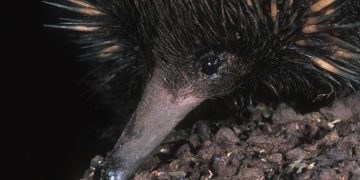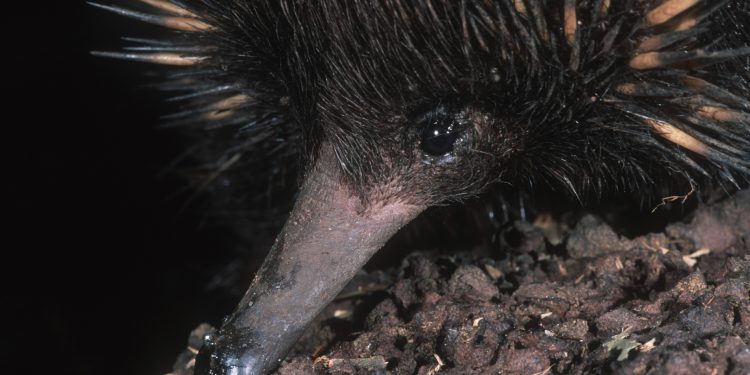The Attenborough echidna has not been seen in six decades but was miraculously caught on camera in Indonesia fending off fears that was extinct.
The footage was posted to Facebook by the AFP New Agency.
According to RTL Today, the recent discovery is being celebrated by the team who made it.
Named after British naturalist David Attenborough, the Zaglossus attenboroughi is a shy long-beaked echidna that went missing decades ago.
It is difficult to spot due to its nature and has never been officially seen outside of the Cyclops Mountains of Indonesia’s Papua region.
University of Oxford biologist James Kempton led the expedition that made the new discovery.
Kempton noted, “The reason it appears so unlike other mammals is because it is a member of the monotremes –- an egg-laying group that separated from the rest of the mammal tree-of-life about 200 million years ago.”
During the trip, Kempton’s team set up 80 different camera trap points. Local residents helped them through rough terrain and even allowed them safe passage onto sacred lands.
On the last day of the expedition, the Attenborough echidna made its appearance.
“I was euphoric, the whole team was euphoric,” Kempton told BBC News of the moment he spotted the Attenborough echidna in camera trap footage.
“I’m not joking when I say it came down to the very last SD card that we looked at, from the very last camera that we collected, on the very last day of our expedition.”
Kempton said he’s heard Attenborough’s reaction about the rediscovery and that he was “absolutely delighted.”
Kempton celebrated his team’s efforts stating, “The discovery is the result of a lot of hard work and over three-and-a-half years of planning.”
In addition to finding the “lost echidna,” Kempton’s team also discovered new species of spiders and a previously unknown scorpion species, as well as a honeyeater bird that has not been seen in 15 years.
They also found a new species of tree-dwelling shrimp.
The team’s lead entomologist, Leonidas-Romanos Davranoglou, stated, “We were quite shocked to discover this shrimp in the heart of the forest.”
He also noted, “Tropical rainforests are among the most important and most threatened terrestrial ecosystems.”
Even though the team struggled throughout the course of their exploration, with Davranoglou breaking his arm and another team member suffering a leech attaching to his eye, Kempton called the expedition “magical.”


































